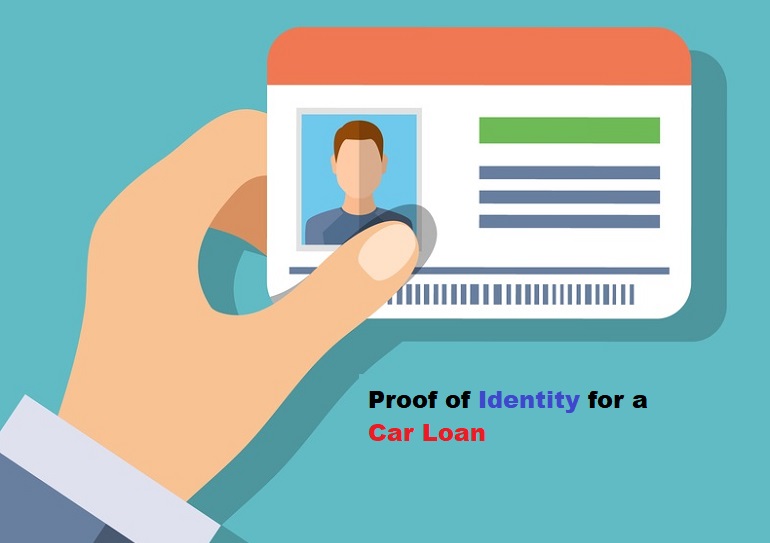If you want to get your car loan approved quickly, you need to prepare in advance. What does early preparation mean? It means having everything ready before you head down to a car dealership. The first thing is to research the requirements needed for a car loan. This will save you the trouble of going back and forth to a dealership.
Although different lenders have different criteria for approving auto loans, most of the requirements cut across the sector. After you have decided which lender to approach, it is important to carry with you all the requirements to help the lender make a quick decision.
Here are 6 Requirements to Qualify for a Car Loan
1. Proof of Identity

All lenders are required by law to verify the identity of a customer before issuing a loan. In most cases, you will be asked to provide a passport, driver’s license, U.S. Visa or any other government-issued I.D. bearing your name and photograph. If a lender has the online application option, then you can upload the documents and wait for verification.
Some lenders have ways of verifying your identity without you presenting them. In some cases, a lender may contact government agencies like a consumer reporting agency. You don’t have to worry because the objective is to ensure that you are who you claim to be. That’s why you need to carry your identification documents when visiting a lender. It is also important to ensure that your documents are up to date. Without which your application might be rejected.
2. Proof of Income

Lenders want to know that you can repay your car loan before agreeing to finance you. This is more than just looking at numbers based on an interest rate. Lenders will want to assess your sources of income, credit history, assets, monthly expenses, and many others things. The objective is to have a clear picture of your financial standing.
If you have decided to take a car loan, then you ought to put everything in order. It will be good to put together all documents that show your income flow up to the last month. Get documents that show all your payments whether it is through business, sale of assets, or salary. A bank statement is a perfect document to give your lender. Most lenders will ask for a bank statement for the past six months.
In case you are self-employed, lenders will request tax returns to find out your gross income. As such, provide copies of your tax returns for the last two years.
3. Credit and Banking History
When applying for an auto loan, you will be required to give a lender your personal details such as Social Security Number, address, name, and date of birth. There are a lot of factors that go into car line of credit requirements. This information allows them to check your credit history. An auto lender may use available credit scoring systems to determine your current score.
They can also assess your credit history by finding out the type of credit accounts, when they were opened, loan or credit limit as well and account balances. Their objective is to dig deep into your income and expenditure.
Additionally, lenders will look at the debt-to-income ratio. This is to determine if you have any unpaid bills, late payments, and debt obligations that you may have. A high debt-to-income ratio may make it difficult for your auto loan request to be approved. A lender may also choose to look into collections and public records in your credit history including foreclosures, lawsuits, wages, bankruptcies liens, and wage garnishment.
4. Proof of Residence
This is another requirement you must fulfill to qualify for a car loan. Federal law mandates lenders to obtain information on your residence and proof of the same. For example, if you provide a driver’s license as proof of identity, then its address must match the address you also provided in the application form. In case you recently moved to a different state or town, then you might have to give the lender further information.
You can use a personalized mail you received recently like:
- Mortgage statement
- Utility bill
- Lease agreement
- Property tax bill
- Bank statement or credit card
- Renters or homeowners insurance
You may not be allowed to use a post office box since they require a physical address. You are also allowed to use the address as next of kin.
5. Vehicle Information
In case you are financing your vehicle through a dealership, the dealer is mandated to provide the lender with all information related to the vehicle. But if you are directly working with a lender, or purchasing a vehicle from a private seller, you will be required to get a bill of sale or a purchase agreement with the following details:
- Price of the vehicle
- Year, make, and model
- Vehicle identification number (VIN)
If you are purchasing a used vehicle, then you can get this information from a seller together with its original title, mileage, and disclosure of any liens on the vehicle.
6. Proof of Insurance
The lender will ask you to provide proof of insurance as soon as you have signed a bill of sale on the car. The insurance in your possession must adhere to the laws of the state in which you are residing. The vehicle must also fulfill any additional requirements from the lender before you are allowed to drive off with it. In case you have an existing car insurance policy, the new vehicle can be covered by that policy for a given period.
But if you don’t have existing auto insurance, it would be good to check around before buying the vehicle. Request for many quotes as possible to get the best cover. Most lenders will not release the vehicle without proof of insurance if you are financing it.
In a nutshell, most lenders would like to see that you have a source of income to pay off the car loan, your credit score is good and you have no or minimal debts.







